We are delighted to announce the shortlist for this year’s Voltas Awards, carefully selected through a rigorous and impartial judging process. Our distinguished panel of judges - each assigned to categories based on their expertise and interests - scored entries independently and in strict confidence, ensuring a fair assessment based on clear criteria. Only those submissions reaching the highest standards have advanced to the shortlist, reflecting true excellence and innovation across the battery raw materials supply chain.
Select the category below to see the shortlisted nominees
🌟 Category 1: Innovation of the year
🌟 Category 2: Best new project
🌟 Category 3: Leader of the year
🌟 Category 4: Outstanding contribution to recycling & reuse in battery materials



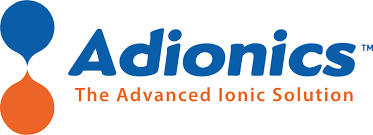 Adionics is shortlisted for its innovative temperature-based direct lithium extraction technology, achieving over 95% recovery and 99.9% purity without chemicals or evaporation ponds. Proven at scale, this energy-efficient, environmentally friendly solution is setting new standards for sustainable lithium supply.
Adionics is shortlisted for its innovative temperature-based direct lithium extraction technology, achieving over 95% recovery and 99.9% purity without chemicals or evaporation ponds. Proven at scale, this energy-efficient, environmentally friendly solution is setting new standards for sustainable lithium supply.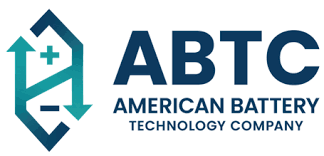 ABTC is shortlisted for demonstrating commercially viable lithium hydroxide production from Nevada claystone using proprietary processing technologies. This milestone advances U.S. lithium independence and accelerates plans for a commercial-scale domestic refinery at Tonopah Flats, one of the nation’s largest lithium deposits.
ABTC is shortlisted for demonstrating commercially viable lithium hydroxide production from Nevada claystone using proprietary processing technologies. This milestone advances U.S. lithium independence and accelerates plans for a commercial-scale domestic refinery at Tonopah Flats, one of the nation’s largest lithium deposits.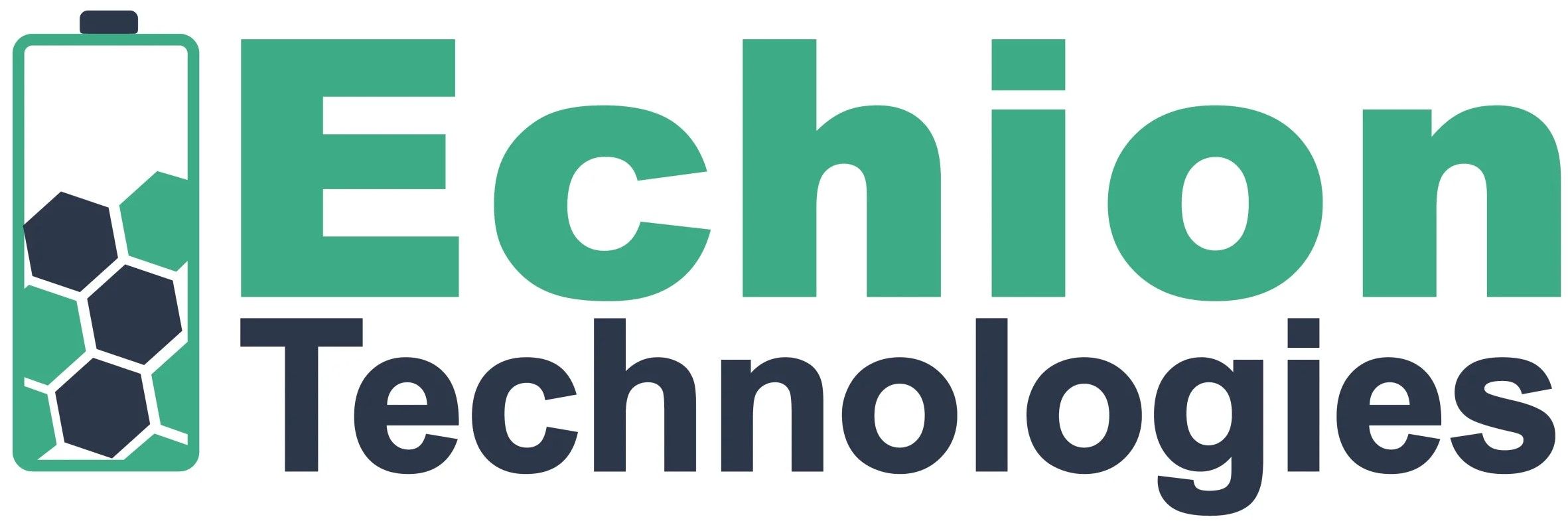 Echion’s XNO® battery chemistry delivers ultra-fast charging, long cycle life, and exceptional safety, enabling high operational efficiency and record-low total cost of ownership. This innovation supports the sustainable electrification of heavy-duty industrial sectors such as mining, construction, and transportation.
Echion’s XNO® battery chemistry delivers ultra-fast charging, long cycle life, and exceptional safety, enabling high operational efficiency and record-low total cost of ownership. This innovation supports the sustainable electrification of heavy-duty industrial sectors such as mining, construction, and transportation.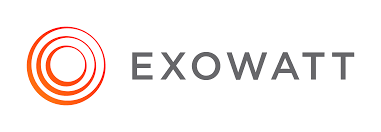 Exowatt’s modular thermal energy storage system delivers 24/7 solar power without lithium, chemicals, or degradation, making it ideal for data centers and off-grid sites. Backed by $70M in funding and a 90 GWh pipeline, it offers scalable, fire-safe, and metal-free renewable energy ready in just 6–8 months.
Exowatt’s modular thermal energy storage system delivers 24/7 solar power without lithium, chemicals, or degradation, making it ideal for data centers and off-grid sites. Backed by $70M in funding and a 90 GWh pipeline, it offers scalable, fire-safe, and metal-free renewable energy ready in just 6–8 months.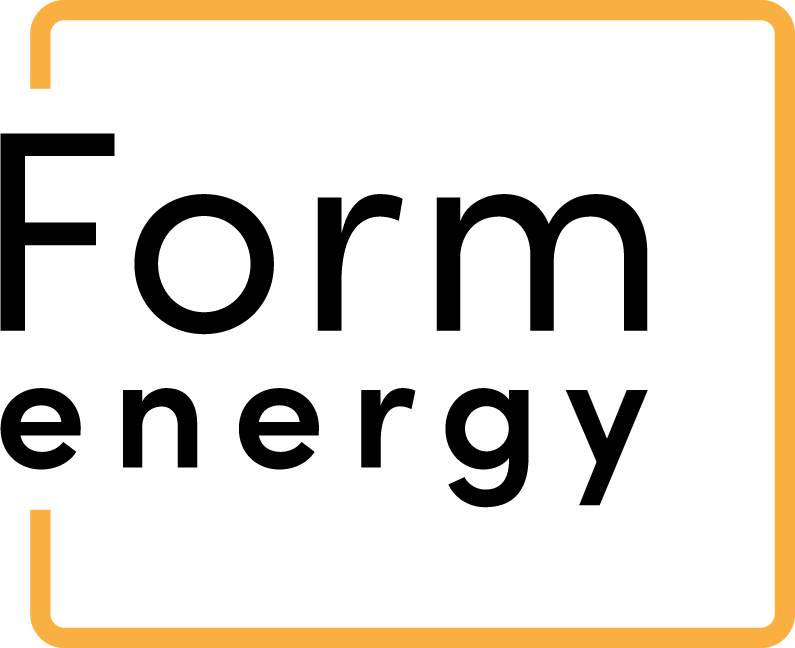 Form Energy’s iron-air battery offers 100+ hours of grid storage at a fraction of lithium-ion’s cost, using safe, non-toxic, U.S.-sourced iron. With a new GWh-scale factory in West Virginia, this breakthrough technology delivers affordable, multi-day energy storage to accelerate renewable adoption and grid decarbonisation.
Form Energy’s iron-air battery offers 100+ hours of grid storage at a fraction of lithium-ion’s cost, using safe, non-toxic, U.S.-sourced iron. With a new GWh-scale factory in West Virginia, this breakthrough technology delivers affordable, multi-day energy storage to accelerate renewable adoption and grid decarbonisation.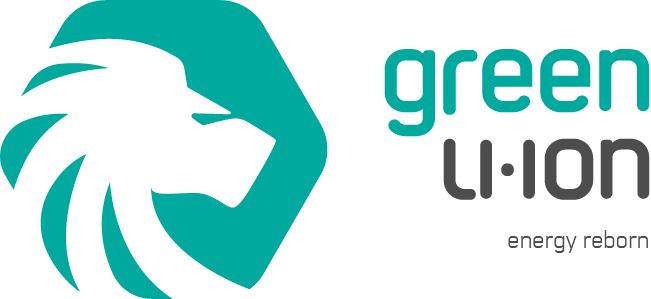 Green Li-ion’s modular GLMC™ system enables on-site, closed-loop recycling of spent lithium-ion batteries into battery-grade materials within hours, achieving 98% recovery and cutting emissions by 90%. Commercially deployed in the U.S. and Asia and backed by $40M+, it is driving scalable, sustainable solutions for the global battery circular economy.
Green Li-ion’s modular GLMC™ system enables on-site, closed-loop recycling of spent lithium-ion batteries into battery-grade materials within hours, achieving 98% recovery and cutting emissions by 90%. Commercially deployed in the U.S. and Asia and backed by $40M+, it is driving scalable, sustainable solutions for the global battery circular economy.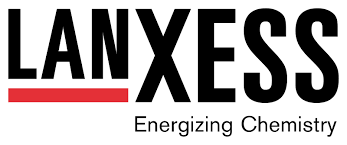 LANXESS has developed high-purity iron oxides for LFP cathodes and non-flammable electrolytes that improve battery safety, scalability, and sustainability. Already used in global EV and ESS supply chains, these materials boost performance and reduce fire risk. Combined with ion exchange resins for lithium refining, LANXESS’s innovations enable safer, cleaner battery production across industries.
LANXESS has developed high-purity iron oxides for LFP cathodes and non-flammable electrolytes that improve battery safety, scalability, and sustainability. Already used in global EV and ESS supply chains, these materials boost performance and reduce fire risk. Combined with ion exchange resins for lithium refining, LANXESS’s innovations enable safer, cleaner battery production across industries. Lilac Solutions’ proprietary ion exchange technology enables faster, cleaner, and higher-yield lithium extraction from brines, achieving over 80% recovery, 99.97% purity, and 90% water return. Successfully piloted in Argentina and the U.S., Lilac solutions is setting new standards for scalable and sustainable lithium supply.
Lilac Solutions’ proprietary ion exchange technology enables faster, cleaner, and higher-yield lithium extraction from brines, achieving over 80% recovery, 99.97% purity, and 90% water return. Successfully piloted in Argentina and the U.S., Lilac solutions is setting new standards for scalable and sustainable lithium supply.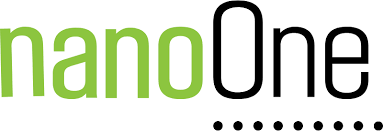 Nano One Materials Corp. is recognized for its patented One-Pot Process, enabling more cost-effective, sustainable, and high-performance cathode active materials for lithium-ion batteries. Based in Canada and scaling up with strategic partners, Nano One is advancing the future of EVs and grid energy storage through innovative materials technology.
Nano One Materials Corp. is recognized for its patented One-Pot Process, enabling more cost-effective, sustainable, and high-performance cathode active materials for lithium-ion batteries. Based in Canada and scaling up with strategic partners, Nano One is advancing the future of EVs and grid energy storage through innovative materials technology.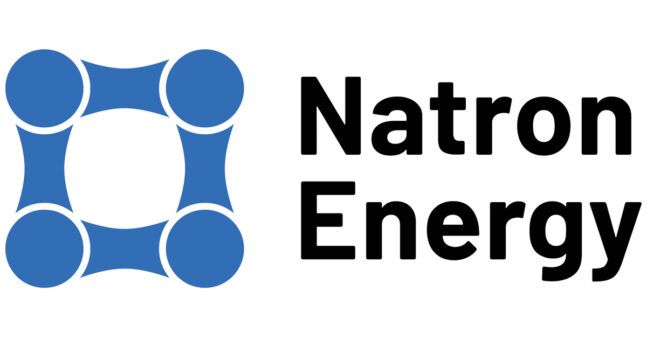 Natron Energy’s sodium-ion batteries, based on Prussian Blue chemistry, deliver over 50,000 cycles with inherent safety and no reliance on critical minerals. With a $1.4B U.S. gigafactory set to produce 24 GWh annually, Natron offers scalable, fire-safe storage ideal for data centers and the grid—advancing safer, more sustainable battery systems.
Natron Energy’s sodium-ion batteries, based on Prussian Blue chemistry, deliver over 50,000 cycles with inherent safety and no reliance on critical minerals. With a $1.4B U.S. gigafactory set to produce 24 GWh annually, Natron offers scalable, fire-safe storage ideal for data centers and the grid—advancing safer, more sustainable battery systems.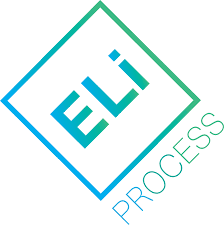 Neometals Ltd’s ELi Process™ cuts the cost of converting lithium brines into lithium chemicals by up to 50% compared to conventional methods, while reducing reagent transport and carbon footprint. With 19 patents granted globally and compatibility with various lithium sources, ELi Process™ is commercially available for licensing, advancing more efficient and sustainable lithium production.
Neometals Ltd’s ELi Process™ cuts the cost of converting lithium brines into lithium chemicals by up to 50% compared to conventional methods, while reducing reagent transport and carbon footprint. With 19 patents granted globally and compatibility with various lithium sources, ELi Process™ is commercially available for licensing, advancing more efficient and sustainable lithium production. NMG is developing the world’s first all-electric open-pit graphite mine and CSPG anode facility in Québec, powered by hydro to significantly reduce emissions. With full traceability, and strong OEM partnerships, NMG offers a sustainable, North American alternative for battery-grade graphite.
NMG is developing the world’s first all-electric open-pit graphite mine and CSPG anode facility in Québec, powered by hydro to significantly reduce emissions. With full traceability, and strong OEM partnerships, NMG offers a sustainable, North American alternative for battery-grade graphite.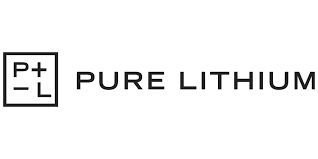 Pure Lithium is pioneering a U.S.-sourced, vertically integrated Brine to Battery™ technology to deliver commercially viable lithium metal batteries that are lighter, safer, and more powerful. By reinventing both materials and production methods, Pure Lithium’s approach enables energy storage solutions fully independent of global supply chains.
Pure Lithium is pioneering a U.S.-sourced, vertically integrated Brine to Battery™ technology to deliver commercially viable lithium metal batteries that are lighter, safer, and more powerful. By reinventing both materials and production methods, Pure Lithium’s approach enables energy storage solutions fully independent of global supply chains.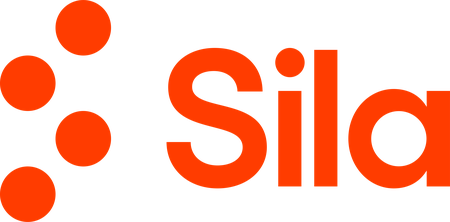 Sila’s Battery Engineering Services empowers consumer electronics and micromobility teams to optimize battery performance by combining advanced material science with their high-performing Titan Silicon anode. This service enables longer runtime, faster charging, and lighter, sleeker product designs, helping innovators deliver the next generation of devices.
Sila’s Battery Engineering Services empowers consumer electronics and micromobility teams to optimize battery performance by combining advanced material science with their high-performing Titan Silicon anode. This service enables longer runtime, faster charging, and lighter, sleeker product designs, helping innovators deliver the next generation of devices.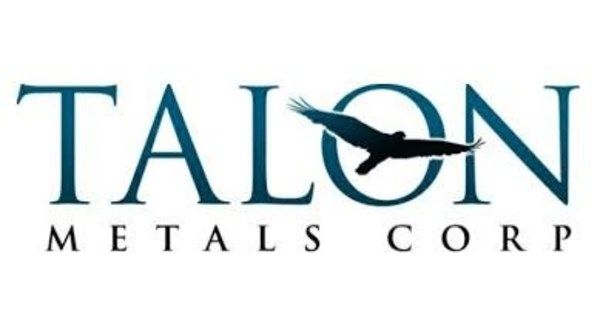 Talon Metals is embedding carbon mineralisation into the Tamarack Nickel Project, turning mine tailings into permanent CO₂ sinks. Paired with low-impact underground mining and a Tesla offtake, it aims to become the world’s first carbon-negative nickel mine — supporting clean, domestic EV supply chains with verifiable climate benefits.
Talon Metals is embedding carbon mineralisation into the Tamarack Nickel Project, turning mine tailings into permanent CO₂ sinks. Paired with low-impact underground mining and a Tesla offtake, it aims to become the world’s first carbon-negative nickel mine — supporting clean, domestic EV supply chains with verifiable climate benefits.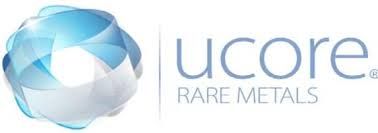 Ucore’s RapidSX® technology separates rare earths faster, cleaner, and more efficiently than traditional solvent extraction. With 50% faster processing and 70% less chemical use, it enables U.S.-based REE supply chains for EVs and wind power. A Louisiana plant launches in 2025.
Ucore’s RapidSX® technology separates rare earths faster, cleaner, and more efficiently than traditional solvent extraction. With 50% faster processing and 70% less chemical use, it enables U.S.-based REE supply chains for EVs and wind power. A Louisiana plant launches in 2025. Ascend Elements has commissioned a new lithium recovery line at its Covington, GA facility and will begin producing over 99% pure, sustainable lithium carbonate in Q2 2025. With plans to boost U.S. production by 60% and an innovative process that reduces CO₂ emissions by up to 86% versus traditional methods, Ascend is setting new benchmarks for sustainable lithium supply.
Ascend Elements has commissioned a new lithium recovery line at its Covington, GA facility and will begin producing over 99% pure, sustainable lithium carbonate in Q2 2025. With plans to boost U.S. production by 60% and an innovative process that reduces CO₂ emissions by up to 86% versus traditional methods, Ascend is setting new benchmarks for sustainable lithium supply.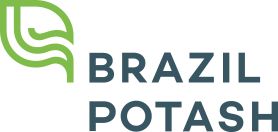 Brazil Potash’s Autazes Project will supply 2.2M t/year of domestic potash via low-impact solution mining, reducing Brazil’s 95% import dependency. With strategic potential for LFP batteries and fertiliser security, and strong ESG safeguards, it’s a critical infrastructure project for Brazil’s future.
Brazil Potash’s Autazes Project will supply 2.2M t/year of domestic potash via low-impact solution mining, reducing Brazil’s 95% import dependency. With strategic potential for LFP batteries and fertiliser security, and strong ESG safeguards, it’s a critical infrastructure project for Brazil’s future.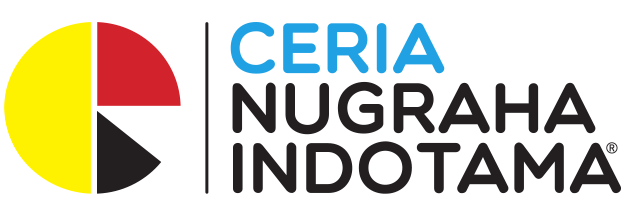 PT Ceria Nugraha Indotama’s Integrated Nickel project in Southeast Sulawesi is setting a new standard in Indonesia’s nickel industry. The project combines mining, RKEF smelting, and HPAL refining to produce ferronickel and battery-grade materials, supporting EV supply chains. With full on-site integration, strong ESG practices, and use of renewable energy, the project showcases Indonesia’s move toward sustainable and value-added mineral development.
PT Ceria Nugraha Indotama’s Integrated Nickel project in Southeast Sulawesi is setting a new standard in Indonesia’s nickel industry. The project combines mining, RKEF smelting, and HPAL refining to produce ferronickel and battery-grade materials, supporting EV supply chains. With full on-site integration, strong ESG practices, and use of renewable energy, the project showcases Indonesia’s move toward sustainable and value-added mineral development.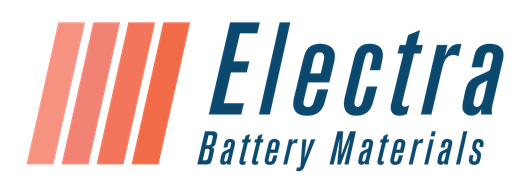 Electra’s Battery Materials Park is North America’s first cobalt sulfate refinery and black mass recycling facility. With ESG-compliant feedstock, closed-loop hydrometallurgy, and 5,000 tonnes/year capacity, it’s reshaping the EV supply chain with ethical, scalable, and low-emission materials. Operational since 2023, it's a cornerstone of a resilient battery ecosystem.
Electra’s Battery Materials Park is North America’s first cobalt sulfate refinery and black mass recycling facility. With ESG-compliant feedstock, closed-loop hydrometallurgy, and 5,000 tonnes/year capacity, it’s reshaping the EV supply chain with ethical, scalable, and low-emission materials. Operational since 2023, it's a cornerstone of a resilient battery ecosystem.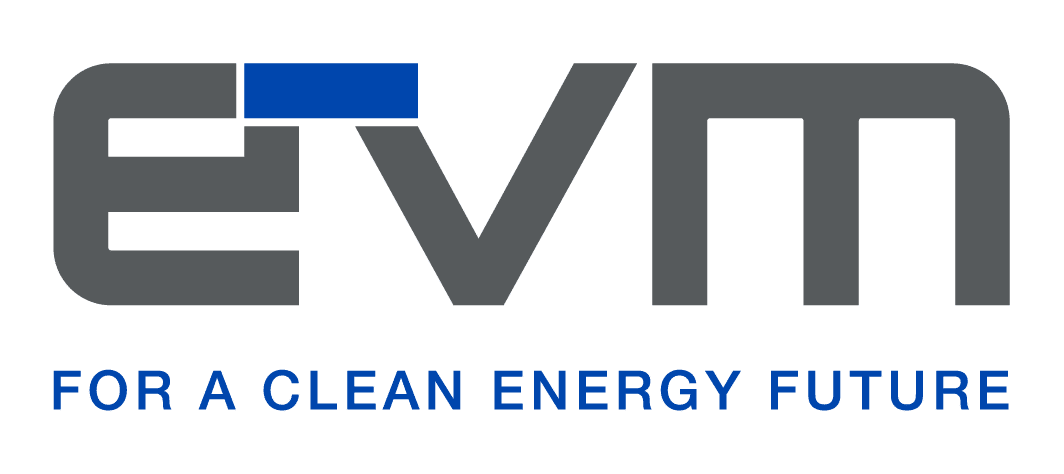 EVM's global battery chemicals and technology company committed to a clean energy future. EVM are focussed on producing high-purity battery chemicals essential for electric vehicles (EVs) and renewable energy storage. Their flagship Lithium Chemicals Plant Project in Yanbu Industrial City, Saudi Arabia, is being developed as a midstream processing hub to diversify and secure global supply chains for high-purity lithium chemicals.
EVM's global battery chemicals and technology company committed to a clean energy future. EVM are focussed on producing high-purity battery chemicals essential for electric vehicles (EVs) and renewable energy storage. Their flagship Lithium Chemicals Plant Project in Yanbu Industrial City, Saudi Arabia, is being developed as a midstream processing hub to diversify and secure global supply chains for high-purity lithium chemicals.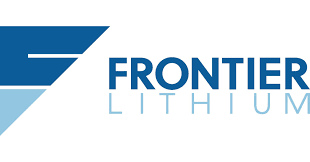 Frontier Lithium is a TSX-V listed, Canadian hard-rock lithium development company with the objective to become a vertically integrated supplier of spodumene concentrates and lithium salts to the growing EV and ESS markets in North America. Together with its partner Mitsubishi Corp., it is developing the PAK Lithium Project, a globally significant lithium deposit in northern Ontario and a conversion facility in Thunder Bay that would support the production of batteries for ~500K EVs per year.
Frontier Lithium is a TSX-V listed, Canadian hard-rock lithium development company with the objective to become a vertically integrated supplier of spodumene concentrates and lithium salts to the growing EV and ESS markets in North America. Together with its partner Mitsubishi Corp., it is developing the PAK Lithium Project, a globally significant lithium deposit in northern Ontario and a conversion facility in Thunder Bay that would support the production of batteries for ~500K EVs per year.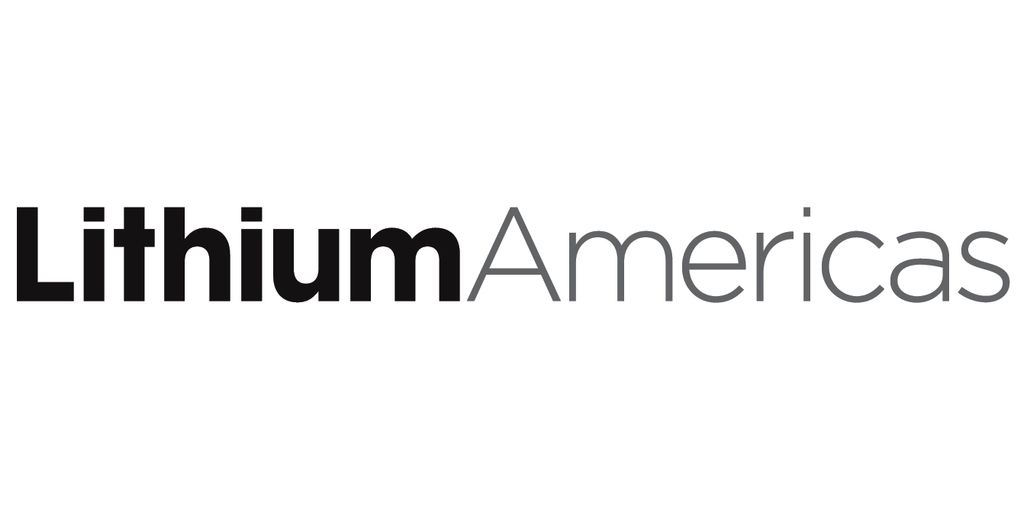 Lithium Americas is a pure-play North American lithium company that is committed to using chemical engineering to maximize sustainability of the first sedimentary lithium project in the world. They are committed to safely and responsibly developing the Thacker Pass project located in Humboldt County, Nevada, which hosts the largest known measured lithium Resource and Reserve in the world. They are proud to be developing a domestic lithium supply chain and lithium district in northern Nevada.
Lithium Americas is a pure-play North American lithium company that is committed to using chemical engineering to maximize sustainability of the first sedimentary lithium project in the world. They are committed to safely and responsibly developing the Thacker Pass project located in Humboldt County, Nevada, which hosts the largest known measured lithium Resource and Reserve in the world. They are proud to be developing a domestic lithium supply chain and lithium district in northern Nevada.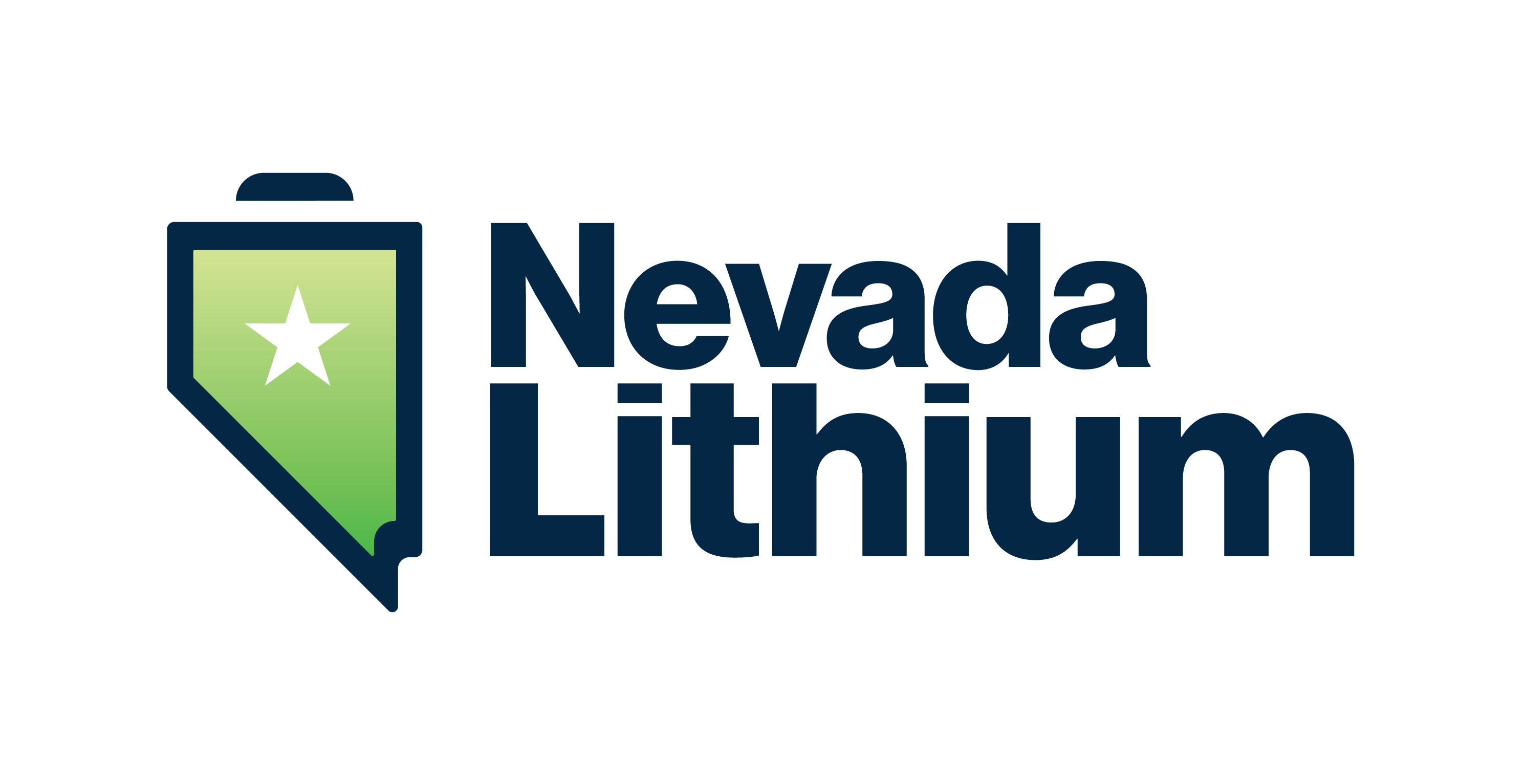 Nevada Lithium’s Bonnie Claire Project is one of North America’s largest sedimentary lithium resources, with over 18 million tonnes LCE. Located in Nevada, it aims to supply the U.S. EV and battery market through scalable, low-carbon extraction methods. The project focuses on renewable energy integration, water recycling, and best-in-class ESG standards—positioning it as a long-term, strategic asset for domestic energy independence and supply chain resilience.
Nevada Lithium’s Bonnie Claire Project is one of North America’s largest sedimentary lithium resources, with over 18 million tonnes LCE. Located in Nevada, it aims to supply the U.S. EV and battery market through scalable, low-carbon extraction methods. The project focuses on renewable energy integration, water recycling, and best-in-class ESG standards—positioning it as a long-term, strategic asset for domestic energy independence and supply chain resilience.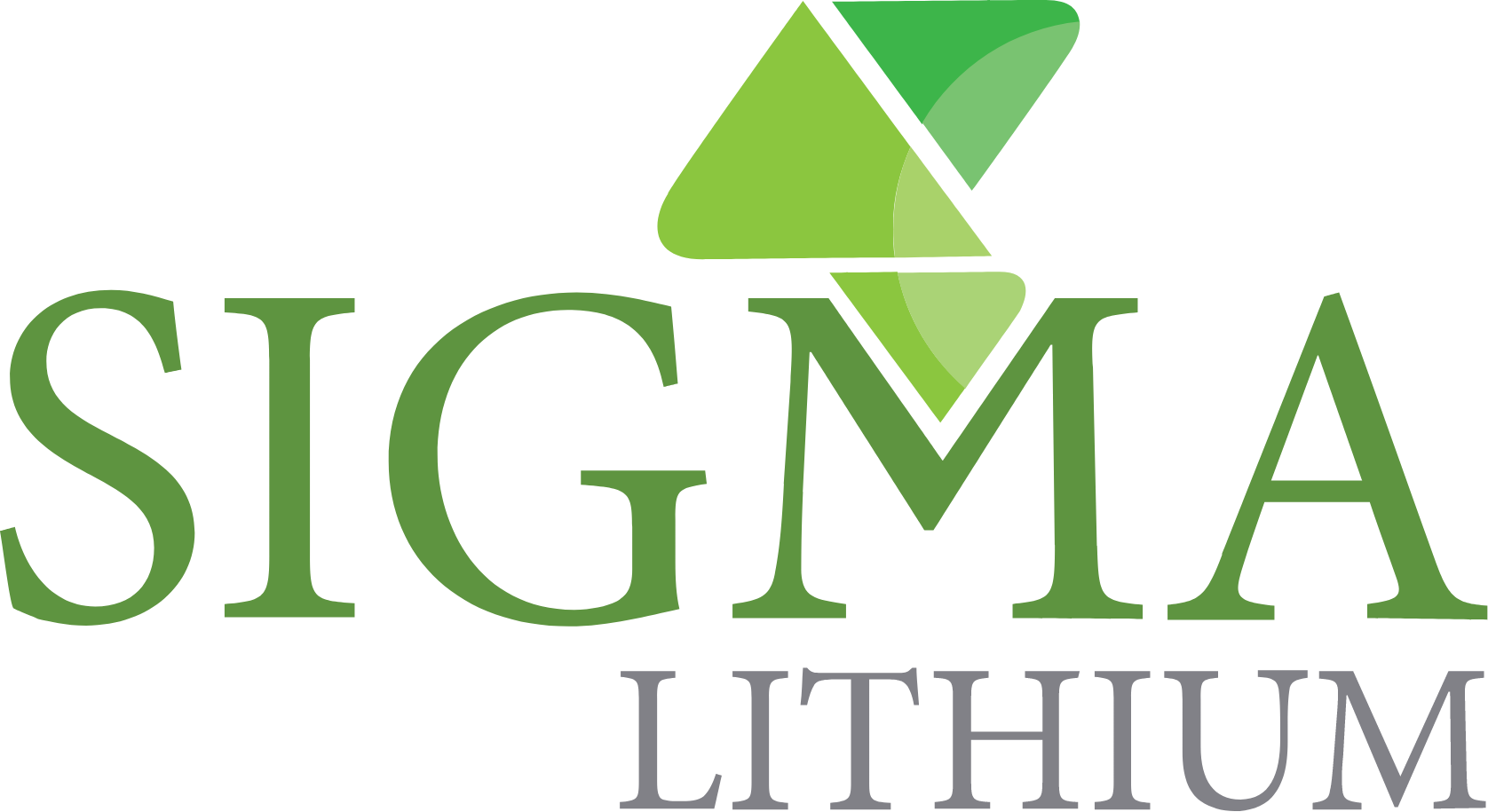 Sigma Lithium’s Grota do Cirilo Project in Brazil is the world’s first major lithium operation producing Triple Zero Green Lithium—zero tailings, zero hazardous chemicals, zero carbon emissions. Powered by 100% renewable energy and using dry-stacked tailings, it’s a scalable, high-impact project with over 270,000 tonnes of annual production. With rapid execution, local employment, and global offtake deals, it’s setting a new benchmark for sustainable lithium mining.
Sigma Lithium’s Grota do Cirilo Project in Brazil is the world’s first major lithium operation producing Triple Zero Green Lithium—zero tailings, zero hazardous chemicals, zero carbon emissions. Powered by 100% renewable energy and using dry-stacked tailings, it’s a scalable, high-impact project with over 270,000 tonnes of annual production. With rapid execution, local employment, and global offtake deals, it’s setting a new benchmark for sustainable lithium mining.










 Aqua Metals is delivering a breakthrough in clean battery recycling with its AquaRefining™ technology, a water-based, closed-loop process that recycles critical metals with near-zero waste. Its pilot lithium-ion battery facility in Nevada demonstrates high recovery rates, zero carbon emissions from furnaces, and alignment with ESG and regulatory benchmarks.
Aqua Metals is delivering a breakthrough in clean battery recycling with its AquaRefining™ technology, a water-based, closed-loop process that recycles critical metals with near-zero waste. Its pilot lithium-ion battery facility in Nevada demonstrates high recovery rates, zero carbon emissions from furnaces, and alignment with ESG and regulatory benchmarks.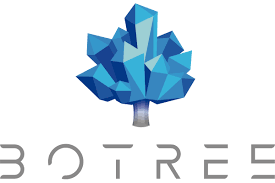 Botree Recycling delivers modular battery recycling systems with 40% lower cost and emissions. Designed for local deployment, its high-efficiency black mass process scales flexible, low-impact battery circularity across China and beyond.
Botree Recycling delivers modular battery recycling systems with 40% lower cost and emissions. Designed for local deployment, its high-efficiency black mass process scales flexible, low-impact battery circularity across China and beyond.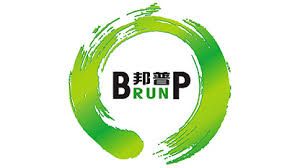 Brunp, CATL’s recycling arm, recycles 300,000+ tonnes/year of spent batteries into high-purity materials. With 95%+ recovery rates and international expansion plans, it anchors global battery circularity through tech leadership and integration with CATL.
Brunp, CATL’s recycling arm, recycles 300,000+ tonnes/year of spent batteries into high-purity materials. With 95%+ recovery rates and international expansion plans, it anchors global battery circularity through tech leadership and integration with CATL.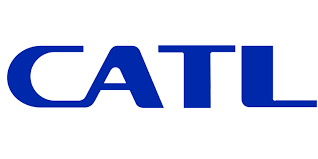 CATL integrates battery design, take-back, and recycling with 95%+ material recovery. Through AI-enabled disassembly and Brunp’s capacity, CATL scales circularity while complying with EPR and EU passport regulations.
CATL integrates battery design, take-back, and recycling with 95%+ material recovery. Through AI-enabled disassembly and Brunp’s capacity, CATL scales circularity while complying with EPR and EU passport regulations. Cirba Solutions, with 30+ years of experience and the largest operational footprint in North America, is the premier battery recycling materials and management company. It uses proprietary technology to recover critical materials from end-of-life batteries and scrap, to reintegrate them into the domestic supply chain. Their recent facility expansions are increasing lithium-ion processing capacity, supporting U.S. access to critical minerals and enhancing national security and competitiveness.
Cirba Solutions, with 30+ years of experience and the largest operational footprint in North America, is the premier battery recycling materials and management company. It uses proprietary technology to recover critical materials from end-of-life batteries and scrap, to reintegrate them into the domestic supply chain. Their recent facility expansions are increasing lithium-ion processing capacity, supporting U.S. access to critical minerals and enhancing national security and competitiveness.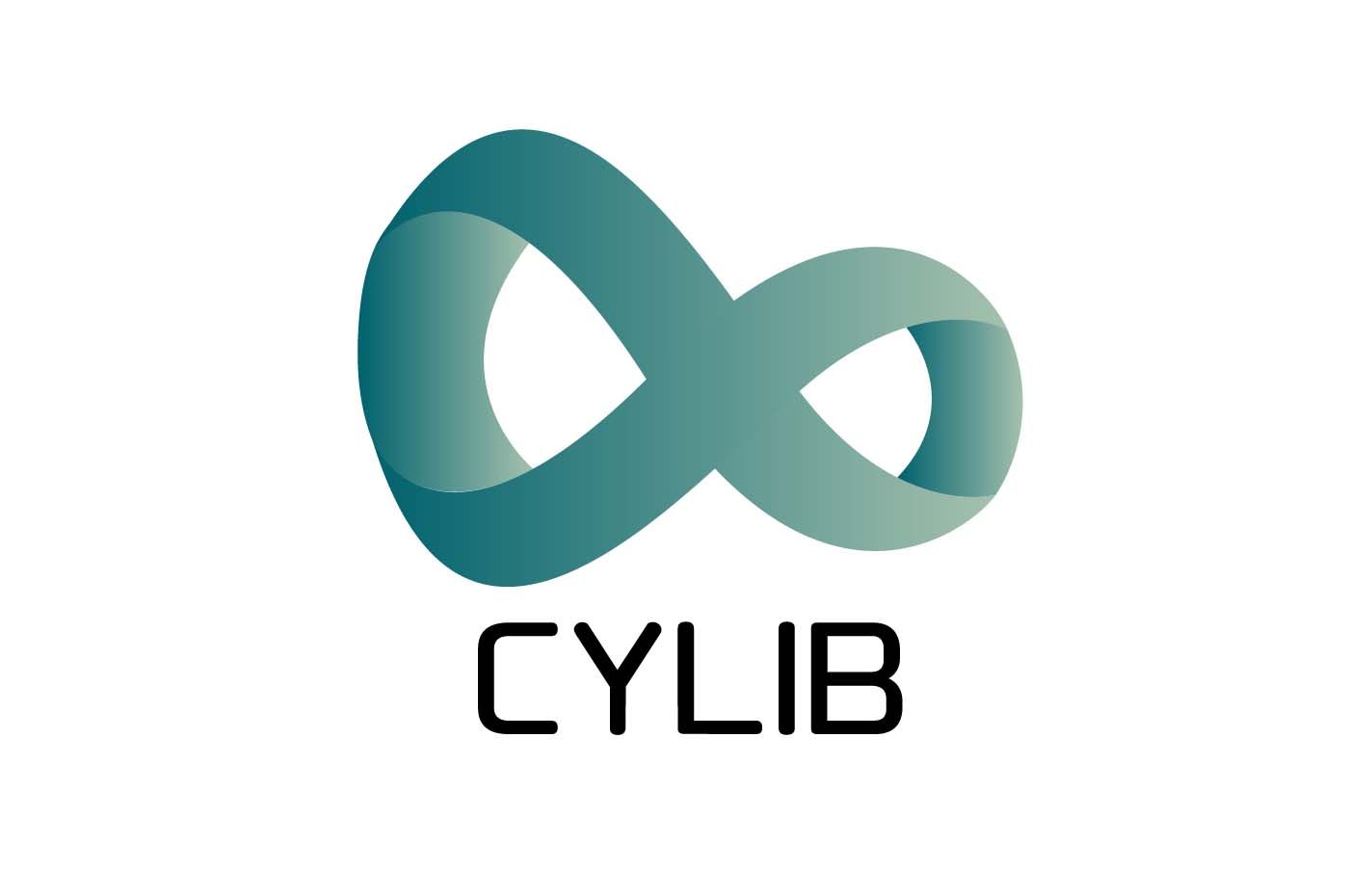 Cylib is pioneering next-gen battery recycling with a near-zero CO2 process that recovers lithium, cobalt, and graphite. Backed by Porsche and Bosch, its new 30,000-tonne facility will service Europe’s EV sector—setting new standards in energy-efficient circularity.
Cylib is pioneering next-gen battery recycling with a near-zero CO2 process that recovers lithium, cobalt, and graphite. Backed by Porsche and Bosch, its new 30,000-tonne facility will service Europe’s EV sector—setting new standards in energy-efficient circularity.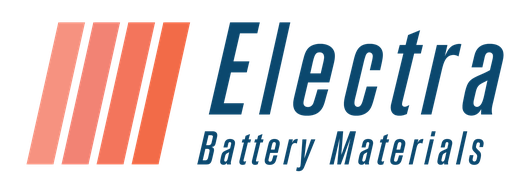 Electra’s hydrometallurgical facility is North America’s first to recycle black mass into battery-grade cobalt, nickel, manganese, and graphite. With 95%+ recovery and low emissions, it enables circular battery production, supports EV supply chains, and advances critical mineral independence.
Electra’s hydrometallurgical facility is North America’s first to recycle black mass into battery-grade cobalt, nickel, manganese, and graphite. With 95%+ recovery and low emissions, it enables circular battery production, supports EV supply chains, and advances critical mineral independence. Fortum leads Europe’s battery recycling with low-emission hydrometallurgy, recovering 95% of key materials. Its scalable, closed-loop process reduces environmental impact and supports EU battery circularity goals—making it a cornerstone of Europe’s sustainable energy transition.
Fortum leads Europe’s battery recycling with low-emission hydrometallurgy, recovering 95% of key materials. Its scalable, closed-loop process reduces environmental impact and supports EU battery circularity goals—making it a cornerstone of Europe’s sustainable energy transition. Ganfeng Lithium is scaling battery recycling with a new 100,000-tonne/year plant that converts spent batteries into lithium hydroxide. Integrated into its global supply chain, Ganfeng’s model supports traceable, sustainable lithium reuse.
Ganfeng Lithium is scaling battery recycling with a new 100,000-tonne/year plant that converts spent batteries into lithium hydroxide. Integrated into its global supply chain, Ganfeng’s model supports traceable, sustainable lithium reuse. GEM Co., Ltd. leads China’s battery circular economy with 90%+ recovery from end-of-life batteries. Its hydrometallurgical tech, 150,000-tonne/year capacity, and partnerships with CATL and BYD make it a global force in sustainable battery material reuse.
GEM Co., Ltd. leads China’s battery circular economy with 90%+ recovery from end-of-life batteries. Its hydrometallurgical tech, 150,000-tonne/year capacity, and partnerships with CATL and BYD make it a global force in sustainable battery material reuse. Hydrovolt’s Norwegian plant recycles 12,000 tonnes of batteries yearly with 90%+ recovery and zero-waste operations. Powered by renewables, it reintegrates recovered materials into Northvolt’s battery loop—advancing traceable, closed-loop EV supply chains in Europe.
Hydrovolt’s Norwegian plant recycles 12,000 tonnes of batteries yearly with 90%+ recovery and zero-waste operations. Powered by renewables, it reintegrates recovered materials into Northvolt’s battery loop—advancing traceable, closed-loop EV supply chains in Europe. Primobius offers modular, eco-friendly battery recycling with 90%+ recovery rates. Its scalable tech and global partnerships with OEMs like Mercedes-Benz enable direct reuse of refined materials—advancing Europe’s industrial circular economy and clean mobility goals.
Primobius offers modular, eco-friendly battery recycling with 90%+ recovery rates. Its scalable tech and global partnerships with OEMs like Mercedes-Benz enable direct reuse of refined materials—advancing Europe’s industrial circular economy and clean mobility goals. Redwood Materials is creating a closed-loop battery materials supply chain by recovering and refining lithium, cobalt, and nickel into battery-grade products. Its Nevada campus scales sustainable recycling with low-emission technology and major OEM partnerships, driving North American battery independence.
Redwood Materials is creating a closed-loop battery materials supply chain by recovering and refining lithium, cobalt, and nickel into battery-grade products. Its Nevada campus scales sustainable recycling with low-emission technology and major OEM partnerships, driving North American battery independence. IBAT’s modular DLE units extract lithium with 95% efficiency and recycle over 90% of water, cutting emissions and land use. Its deployable systems redefine sustainable lithium production for decentralised, low-impact operations.
IBAT’s modular DLE units extract lithium with 95% efficiency and recycle over 90% of water, cutting emissions and land use. Its deployable systems redefine sustainable lithium production for decentralised, low-impact operations. Lithium Harvest extracts lithium from oilfield brines using solar-powered DLE. Its modular, zero-pond technology cuts emissions by 70% and recycles water—delivering low-impact, circular lithium supply aligned with clean energy goals.
Lithium Harvest extracts lithium from oilfield brines using solar-powered DLE. Its modular, zero-pond technology cuts emissions by 70% and recycles water—delivering low-impact, circular lithium supply aligned with clean energy goals. PLS integrates sustainability across its lithium mining operations through emissions reduction, tailings management, and Indigenous partnerships. Its renewable energy strategy, recycling initiatives, and ESG transparency make it a model for environmentally and socially responsible mining in Australia.
PLS integrates sustainability across its lithium mining operations through emissions reduction, tailings management, and Indigenous partnerships. Its renewable energy strategy, recycling initiatives, and ESG transparency make it a model for environmentally and socially responsible mining in Australia.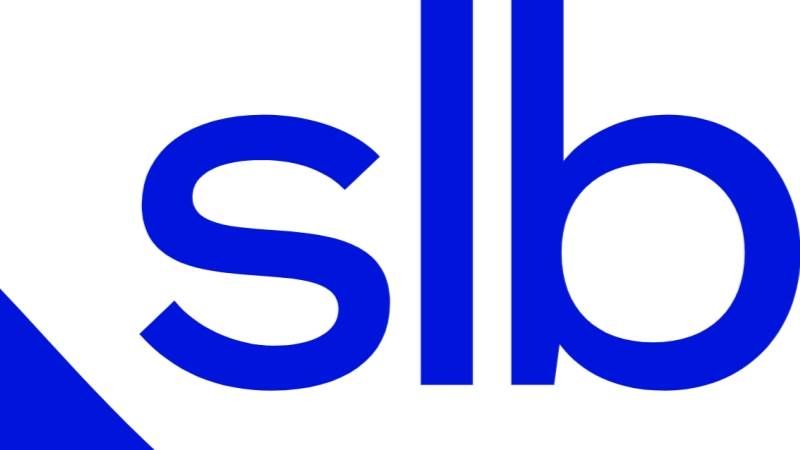 SLB has developed an innovative well-to-product integrated lithium solution to meet the rising demand for battery-grade lithium. This solution emphasizes environmental stewardship by using a streamlined technical flowsheet, which significantly reduces water consumption and land use. The process is more efficient and environmentally friendly, supporting local communities and positioning SLB as a key player for sustainable practices in the lithium mining industry.
SLB has developed an innovative well-to-product integrated lithium solution to meet the rising demand for battery-grade lithium. This solution emphasizes environmental stewardship by using a streamlined technical flowsheet, which significantly reduces water consumption and land use. The process is more efficient and environmentally friendly, supporting local communities and positioning SLB as a key player for sustainable practices in the lithium mining industry.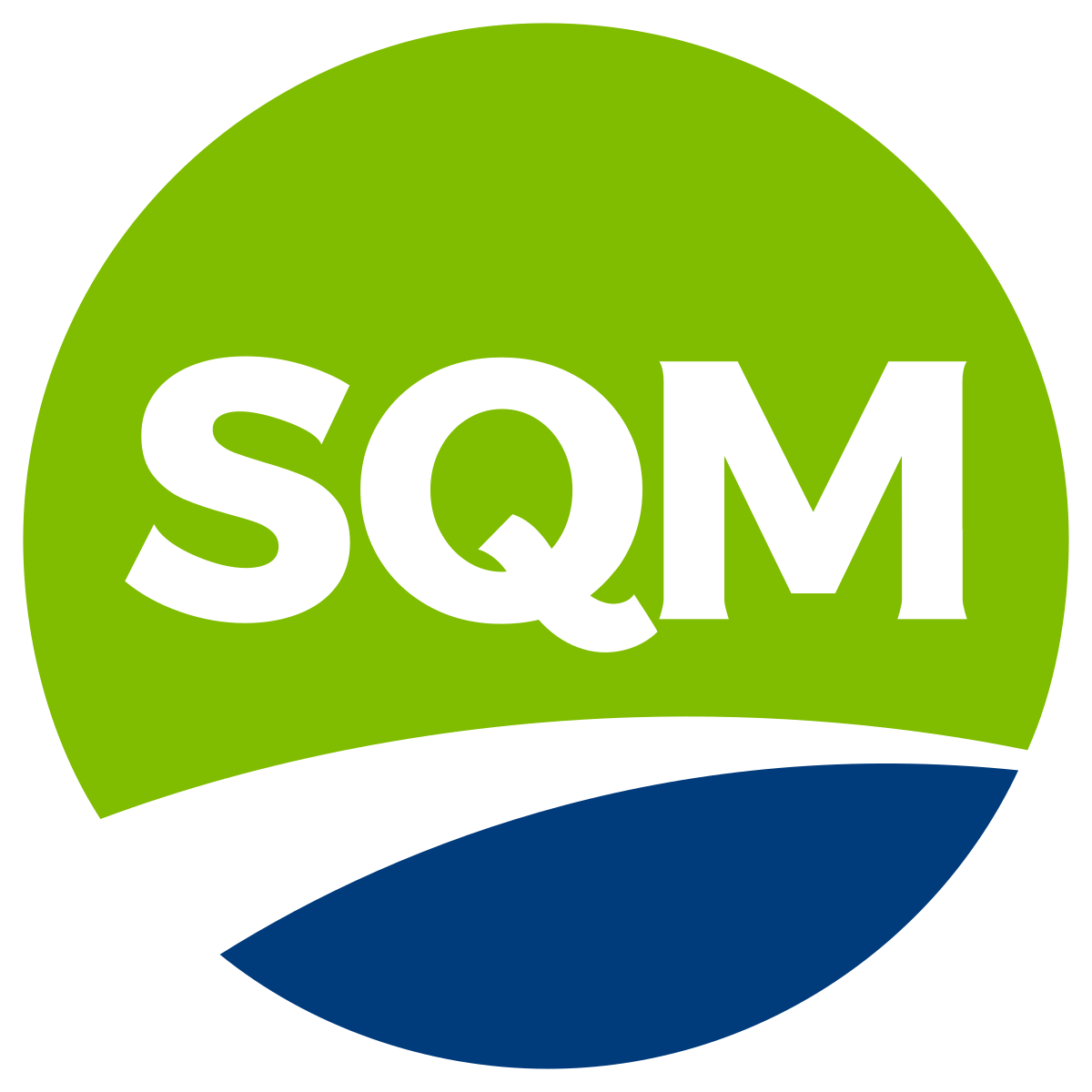 SQM is pioneering sustainable lithium extraction in Chile’s Atacama Desert through advanced brine management, water efficiency, and carbon reduction. With transparent reporting, community partnerships, and a goal to be carbon neutral in lithium by 2030, SQM is setting global sustainability benchmarks for responsible resource development.
SQM is pioneering sustainable lithium extraction in Chile’s Atacama Desert through advanced brine management, water efficiency, and carbon reduction. With transparent reporting, community partnerships, and a goal to be carbon neutral in lithium by 2030, SQM is setting global sustainability benchmarks for responsible resource development.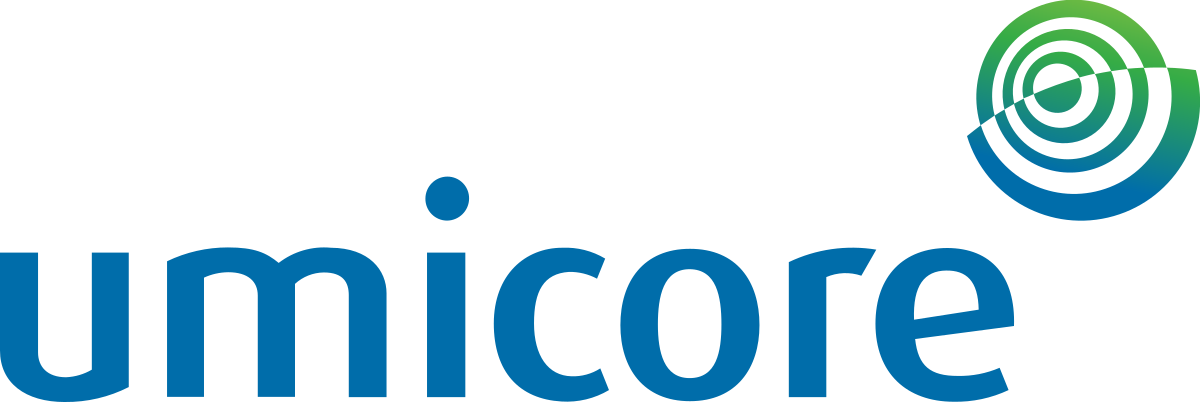 Umicore recovers 95% of metals from spent batteries, reintegrating them into new cathodes. Its net-zero plan, ethical sourcing, and closed-loop system make it a global leader in circular, low-impact battery material production.
Umicore recovers 95% of metals from spent batteries, reintegrating them into new cathodes. Its net-zero plan, ethical sourcing, and closed-loop system make it a global leader in circular, low-impact battery material production. Vulcan Energy is revolutionising lithium production with its Zero Carbon Lithium™ project in Germany. Combining geothermal energy with direct lithium extraction, it produces battery-grade lithium with net-zero emissions. Vulcan is redefining sustainability, aligning climate action with critical mineral supply for the energy transition.
Vulcan Energy is revolutionising lithium production with its Zero Carbon Lithium™ project in Germany. Combining geothermal energy with direct lithium extraction, it produces battery-grade lithium with net-zero emissions. Vulcan is redefining sustainability, aligning climate action with critical mineral supply for the energy transition.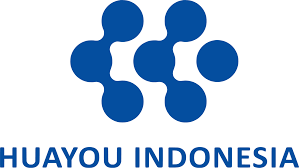 Huayou Cobalt achieved carbon neutrality at a major Chinese refinery and recycles end-of-life batteries. It leads in responsible sourcing, ESG reporting, and circularity—driving sustainable cobalt supply across continents.
Huayou Cobalt achieved carbon neutrality at a major Chinese refinery and recycles end-of-life batteries. It leads in responsible sourcing, ESG reporting, and circularity—driving sustainable cobalt supply across continents.





